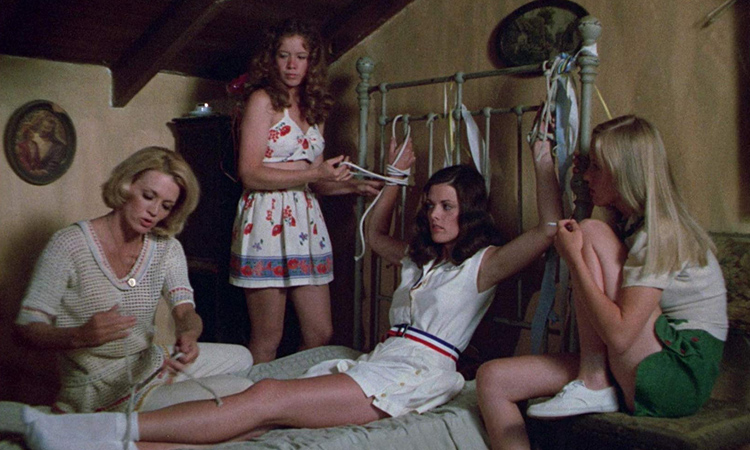
Angie Dickinson had been playing tough broads for most of her career; from Rio Bravo (1959) and The Killers (1964) to Point Blank (1967). For producer Roger Corman, Angie Dickinson was a natural choice to join Shelley Winters and Lurene Tuttle in the pantheon of quintessential crime boss mamas. In addition to being tough as nails Dickinson was gorgeous and willing to accommodate the sexploitation aspects of Corman’s production.
Roger Corman’s Big Bad Mama (1974) arrived at drive-in theaters as the public craze for all things Bonnie & Clyde (1967) related began to wane. By the time Corman produced Big Bad Mama and introduced the world to Angie Dickinson’s Wilma McClatchie he’d already exploited the popularity of Bonnie & Clyde a few times. But none of those earlier outings starred Angie Dickinson and were as sleazy as Big Bad Mama.
Director Steve Carver came too Big Bad Mama fresh off of the infamous The Arena (1974). Carver was adequate at staging action sequences and stunts, but his real specialty was in incorporating nudity into scenes that didn’t call for it. All throughout Big Bad Mama breasts are falling out of blouses and dresses as Mama McClatchie and the girls (Robbie Lee and Susan Sennett) make their getaways. The sex and nudity is so pervasive in Big Bad Mama that it gave Angie Dickinson the reputation of being an exhibitionist.
The plot of Big Bad Mama is a slightly altered copy of Bonnie & Clyde but instead of a couple at the center of the gang it’s a mother and her two teenaged daughters. The men (Tom Skerritt and William Shatner) exist peripherally to the family, becoming involved as sexual playthings and instruments to be exploited in the pursuit of ill gotten gains. Big Bad Mama discards accepted notions of romantic and sexual relationships in favor of “free love”.
Big Bad Mama has got gore, sex, nudity (including Cpt. Kirk), bad accents, Dick Miller, and a whole lotta bullets working in its favor. But the film is Angie Dickinson’s. No one else could coldly quip “God rest his soul” like she could. Dickinson doesn’t play her character like a person at all, but more like a force of nature. Dickinson’s Ma McClatchie is an indomitable powerhouse committed to her children and to crime. There’s something primal about this portrayal that is nonetheless campy and silly. The best comparison to make is probably to Faye Dunaway’s legendary work in Mommie Dearest (1981).
